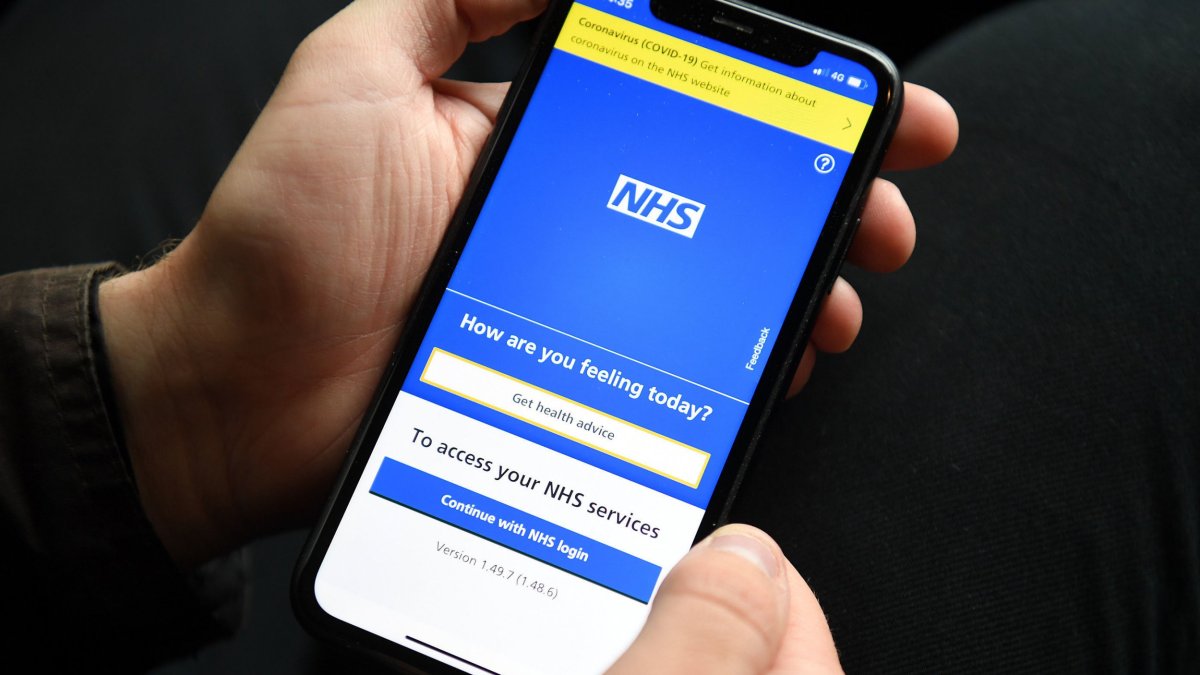The upgrade has helped to cut waiting times for elective surgery and other appointments, according to NHS England’s analysis of data
Reform of the NHS app has resulted in 1.5 million fewer appointments being missed, ministers have revealed.
NHS England’s analysis of data from the app showed the upgrade has helped to cut waiting times for elective surgery and other appointments. Patient groups welcomed the news but warned those facing “digital barriers” are in danger of being left behind.
Sir Keir Starmer said his Government’s moves to speed up the rollout was leading the NHS out of the “dark ages” it had been stuck in under previous administrations. Ministers set out plans to expand the use of the app earlier this year, as part of the elective reform plan.
The scheme is aimed at delivering two million extra appointments by the end of the year, and giving people more flexibility in how they get the care they need.
Data gathered by NHS England from the app shows it has prevented 1.5 million appointments from being missed since last July.
This is also believed to have saved almost 5.7 million hours of staff time and cut £622m as a result of saved appointments.
The NHS waiting list crisis
The waiting list for routine treatment on the NHS in England has been falling for several months – but clearing it completely will take years.
The list was already at 4.3 million people when Covid struck, which saw the figure balloon to almost eight million at its peak.
The waiting list for hospital treatment fell for the sixth month in a row in February, according to latest data published this month. It now stands at an estimated 7.40 million treatments relating to 6.24 million patients.
The Labour Government has set its stall on eradicating the list – or at the very least making substantial inroads into it – by the end of this Parliament in four years’ time.
Initial reforms are clearly working, but at the current rate the waiting list will remain at several million by the time of the next election. And that will cause a serious problem for Keir Starmer.
The Prime Minister said: “Our NHS has been stuck in the dark ages held back by old fashioned systems where patients are struggling for appointments and unable to access their own data. We saw during the pandemic how apps can totally transform everyday access to health services. So there’s no excuse for the lack of progress in the NHS we’ve inherited.
“NHS reform has to come through better use of tech, it’s the fuel we need to power change. As we deliver our Plan for Change to end hospital backlogs, I want to see more and more people having the option to use the app, so that everyone benefits from more control and choice over their treatment.”
Ministers have exceeded their target number of hospitals which are allowing patients to view appointment information on the app. They had aimed to increase this to 85 per cent of hospitals in England by the end of March, but have reached 87 per cent, up from 68 per cent in July 2024.
Health Secretary Wes Streeting said: “Every missed appointment and wasted staff hour saved means another patient getting the care they need as we drive a digital NHS revolution through our Plan for Change.”
The rollout of the app was welcomed by doctor and patient groups.
Dr John Dean, clinical vice president of the Royal College of Physicians, said: “A focus on incrementally building functionality in the NHS app to support patients to manage their own healthcare will lead to better more connected digital systems that work better for staff and patients, freeing up time and increasing productivity.”
Rachel Power, chief executive of the Patients Association, said it was “very encouraging” to see how the app was “giving patients greater power over their healthcare”.
However, she added: “While this digital progress is vital and the 20 per cent increase in hospital participation is welcome, we must also ensure no one is left behind. Digital access remains a barrier for many, so we welcome the initiative providing support for online health services at 1,400 libraries across England.”
Voters sceptical changes will be enough
The app update is the latest change introduced by the Government in its bid to eradicate the long waiting list for routine treatment – a key Labour promise at the last election.
Earlier this month, the Government announced it is expanding a scheme to divert patients off lengthy hospital waiting lists and instead have them seen by GPs in order to accelerate their care.
However, Healthwatch England – the patient watchdog – shared concerns that the “advice and guidance” scheme could worsen poor relationships between patients and doctors and even delay GP referrals if all they can offer at a first appointment is advice.
Charities also warned patients could face delays to referrals for care for certain conditions including endometriosis and IBS.
Voters believe Labour’s NHS waiting list pledge will not be met by election. Under his Plan for Change unveiled in January, Sir Keir Starmer pledged that by the next election, 92 per cent of patients waiting for elective surgery will be treated within 18 weeks.
But 70 per cent of Britons think it is not very likely or not at all likely that this commitment will be met, the More in Common survey reveals.
Only 21 per cent think this target is quite likely or very likely to be met, while the rest do not know.
A More in Common survey revealed this month that only one in five people believes the Government will meet its flagship pledge.
